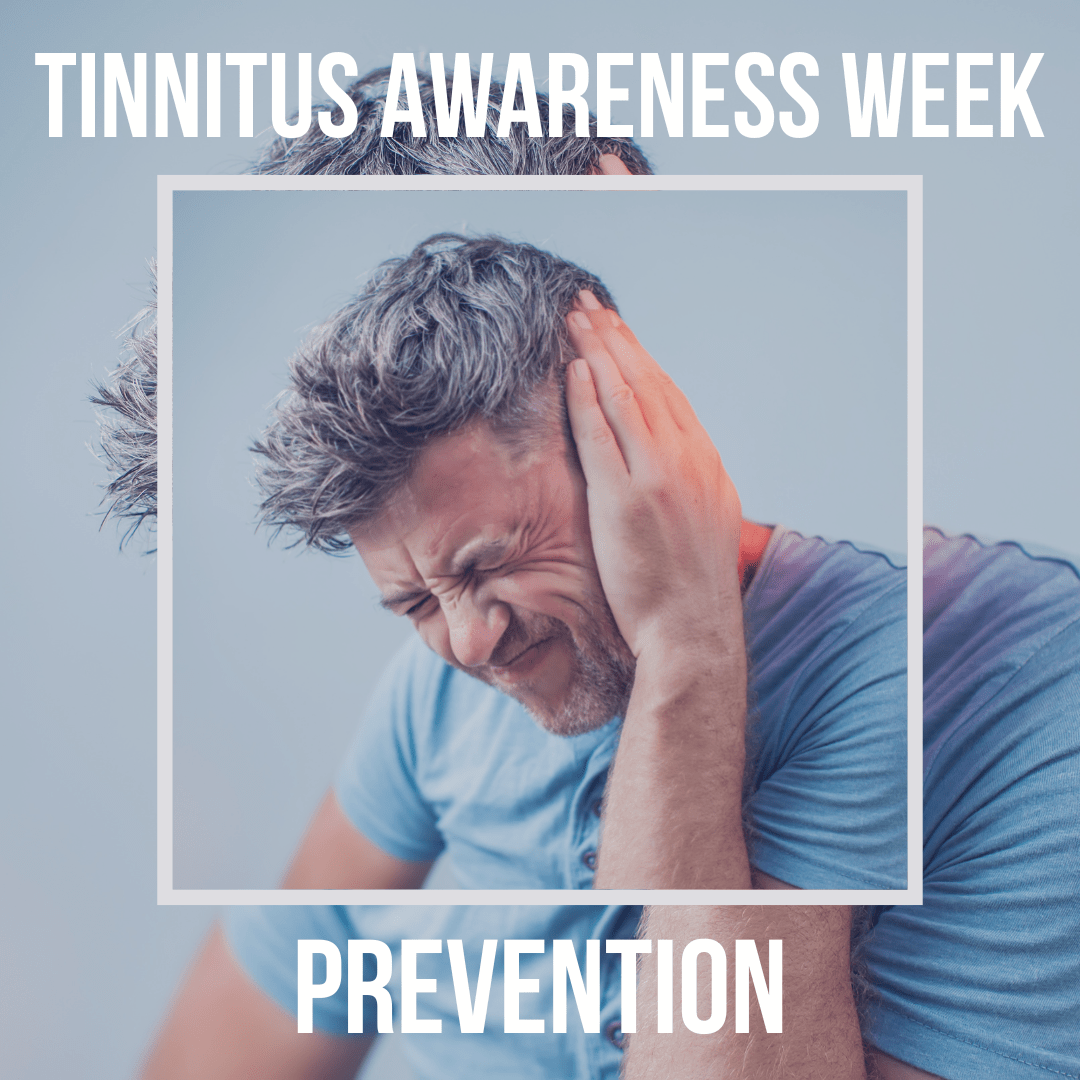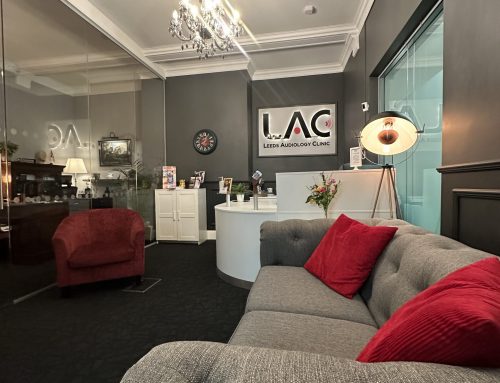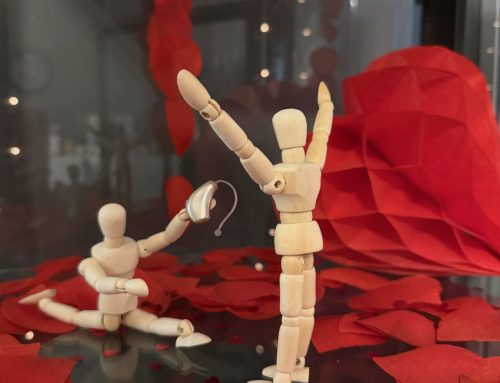#TinnitusWeek 6th-13th February
Tinnitus Awareness Week is fast approaching and the theme this year is PREVENTION. The aim is to share information and support those who have damaged hearing as a result of living or working in loud environments. Tinnitus UK will be sharing some helpful info on their website and social media channels – #TinnitusWeek. Their campaign Plug’em aims to encourage wearing earplugs anywhere you might be exposed to dangerous noise levels. You can read more about the Plug’em campaign here.
What is Tinnitus and is it common? 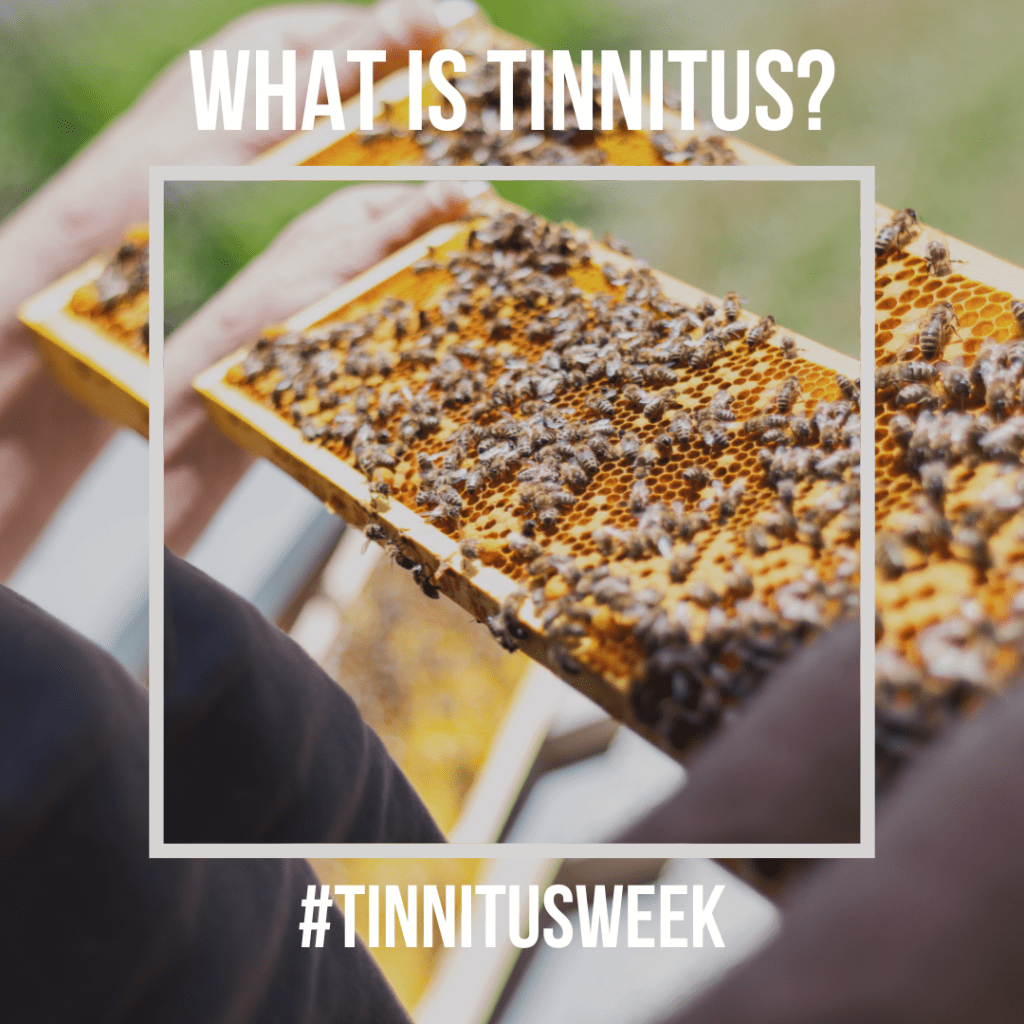
Tinnitus is the sensation of hearing a sound when there is no external source for that sound. It is unique to the person hearing it but may sound like buzzing, ringing, whistling, hissing or other noises. The volume can vary from one episode to the next. Click here for some examples of common tinnitus sounds.
Tinnitus is becoming more common with latest research suggesting 1 in 7 adults have tinnitus all the time or regularly.
What can cause Tinnitus?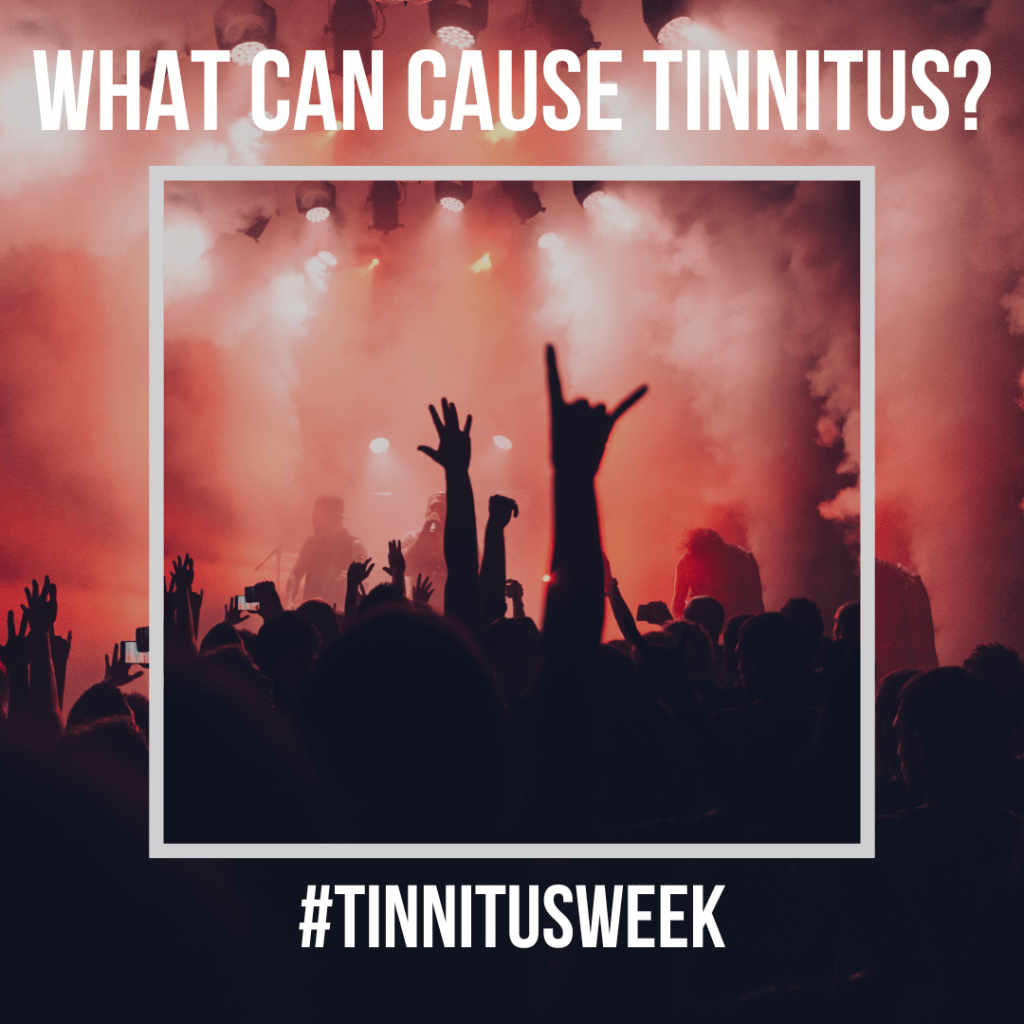
It’s not always clear what causes tinnitus but some possible causes include:
– Exposure to loud noises
– Hearing loss
– Ear infections
– Diabetes
– Wax build-up
– Stress
– Anxiety and depression
– High blood pressure
– Side effect of certain medication
If you’re experiencing tinnitus, we recommend contacting your GP. Your GP will initially check your ears for wax and carry out an assessment before recommending the next course of action.
How can I prevent Tinnitus?
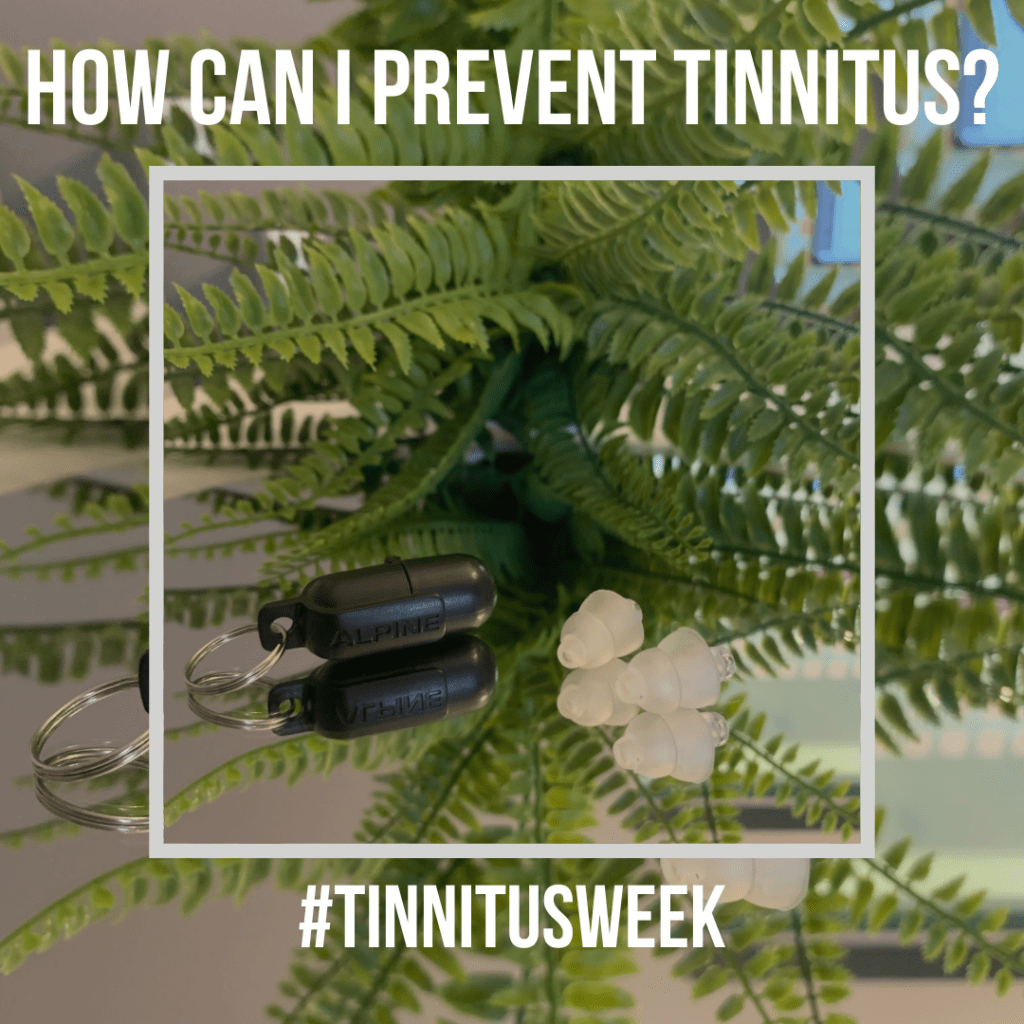
This #TinnitusWeek the theme is PREVENTION. It’s so important to preserve your hearing where you can and protect your ears.
Our clinic manager, Emily, regularly wears Alpine plugs for gigs and noisy environments. “These plugs were great for protecting my hearing when I worked band nights at my local pub. I’d struggle to sleep at night as my ears would ring for days afterwards. I found that I could still hear the music well and understand customers with the plugs in. Since leaving the pub I still carry them with me and use them at gigs and concerts. The Alpine plugs are affordable and small enough to keep on my keyring or in my handbag. There’s still a stigma about hearing protection but the plugs are so discreet no one notices that I’m wearing them. I know that they’ll protect my hearing for the future. Once my hearing is damaged it can’t be repaired.”
Decibel level and maximum exposure time
This chart shows the average intensity of a sound made by different things and the amount of time it is safe to be exposed to this to, without needing hearing protection.
| Decibel Level | Source of Sound | Length of Time |
| 85dB | Kitchen blender | 8 hours |
| 88dB | Forklift truck | 4 hours |
| 91dB | Tube train | 2 hours |
| 94dB | Lawnmower | 1 hour |
| 97dB | Industrial fire alarm | 30 min |
| 100dB | Bulldozer/handheld drill | 15 min |
| 103dB | MP3 player full volume | 7 min 30 seconds |
| 106dB | Motorbike | 3 min 45 seconds |
| 109dB | Crying baby | 1 min 42 seconds |
| 112dB | Live rock band | 1 min 6 seconds |
| 115dB | Ambulance siren | 33 seconds |
For more information on how loud is loud, you can visit Tinnitus UK’s website!
Is there a link between Tinnitus and hearing loss?
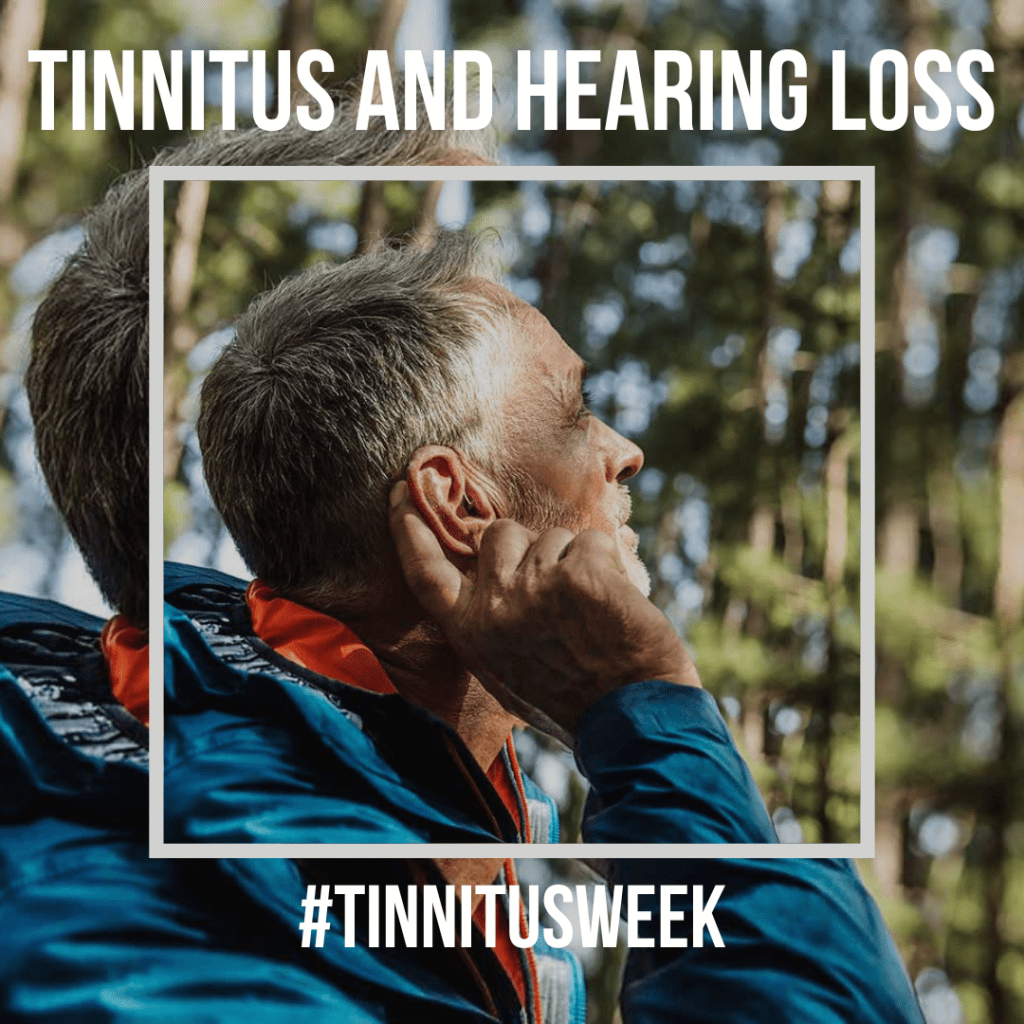
Many people who have hearing loss also have tinnitus. Although it’s not clear why, it’s thought that a temporary or permanent change to the hearing system can cause this. Sound waves travel through the outer and middle ear to the cochlea which is how we hear. The cochlea is lined with thousands of hair cells that sense sound waves and change them to electrical signals. The hearing nerve sends these electrical signals to the brain and recognises them as sound. When part of the ear or hearing nerve becomes damaged or isn’t working as it should, it reduces the number of electrical signals sent to the brain. Research has shown that the brain ‘fills in the gaps’ of the sounds that it expects to hear, and this could create the sensation we know as tinnitus.
Another possibility is that if you have a hearing loss, you may be more aware of tinnitus because you won’t hear as many environmental sounds to distract you. If this is the case, hearing aids may be able to help with this.
If you think you may have hearing loss, the RNID have a free online hearing test here. Please note, online hearing tests are to give a rough idea of hearing loss. For reliable hearing test results, we recommend contacting your audiologist or GP.
I have Tinnitus, what can I do?
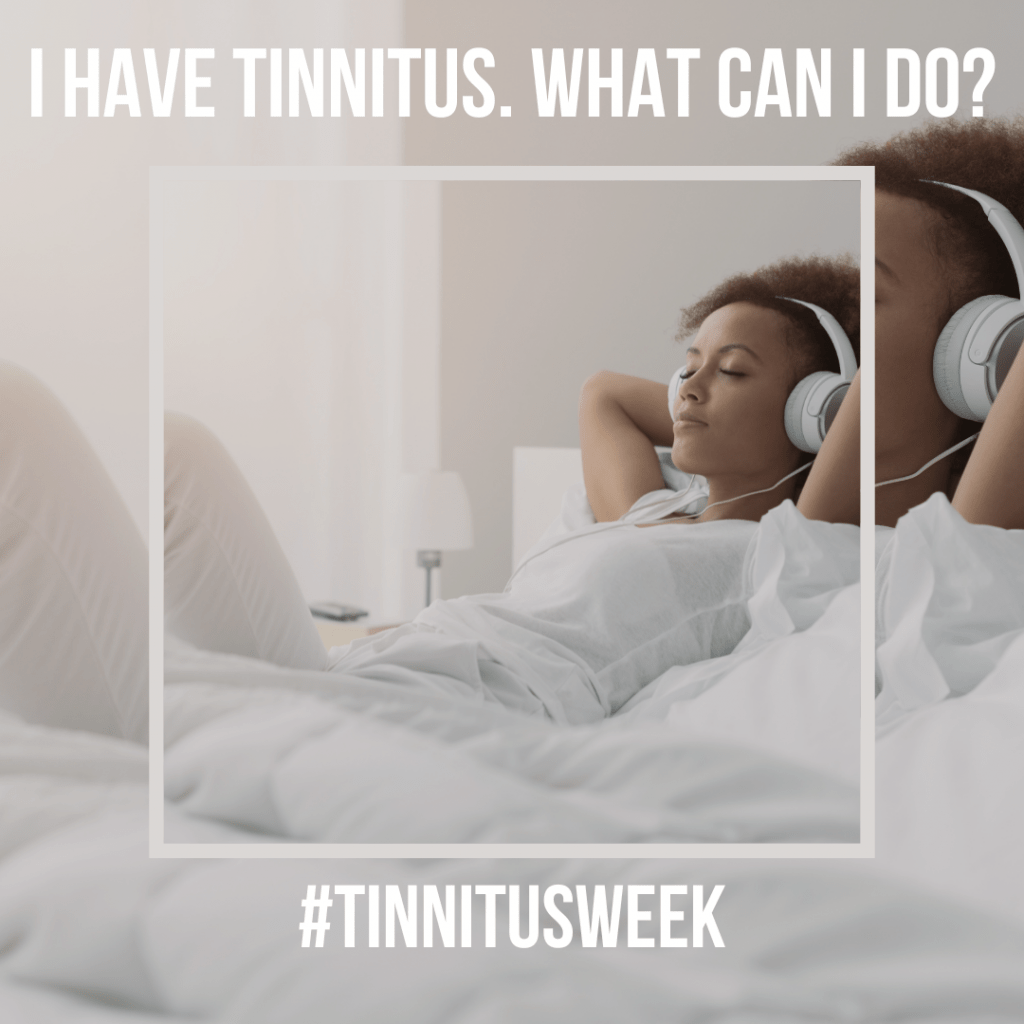
Tinnitus can be distressing for some people, so speaking to your GP is a good first step if you are struggling. While there’s no cure for tinnitus, there are ways to make living with tinnitus more manageable. Some examples are:
– Relaxation and meditation
– Exercise
– Diet
– Distraction activities
– Background sounds/music
– Talking to someone
You can find more information here – https://tinnitus.org.uk/support-for-you/what-can-i-do/self-help-tips/
#TinnitusWeek
Don’t forget to follow #TinnitusWeek on social media for more information!
Although we’re not currently offering Tinnitus services at our clinic, please get in touch if you have any questions! You can contact us here with any queries or to book an appointment for a hearing test.

